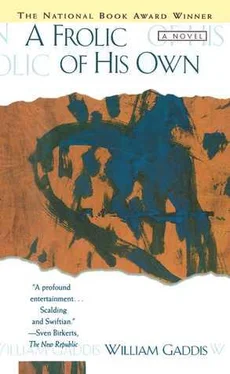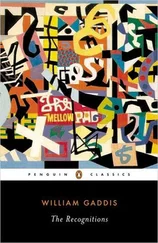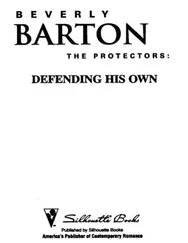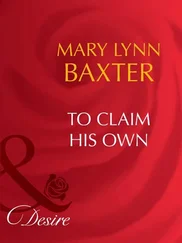The defendants are in the business of providing motion picture entertainment in Hollywood, California. Erebus, headed by studio chief B F Leva for almost two decades, a rare event in that mercurial milieu, is well known for its lavishly budgeted 'blockbuster' offerings. Kiester is an independent producer and director whose recent Africa extravaganza Uruburu, containing scenes aptly tagged 'Not for the squeamish,' made over $300 million and his top professional reputation. While denying allegations of fraud as set forth in plaintiff's Third Cause of Action, Kiester concedes that he began his career as a television producer in New York under his given name Jonathan Livingston, later to be known as Jonathan L 5iegal, and upon arriving in Hollywood taking the name Constantine Kiester. it was to the defendant under the first of these names plaintiff contends that he originally submitted his playscript, receiving it back with a curt note of rejection, an occurrence of which defendant denies any recollection and in any event did not solicit. Defendants contend that having determined that the motion picture market was ready for a spectacular treatment of the Civil war, given the historic success of Gone With the Wind and its projected sequel by a rival studio, they cast about for a story that would provide a suitable vehicle for an actor named Bredford, just then not employed. To this end Kiester contacted a former schoolmate named John Knize whom he remembered as a Civil War 'buff who provided the story idea and at Kiester's request expanded it into a treatment. On the strength of this treatment Kiester contracted with Erebus to produce and direct the picture, assigning preparation of the screenplay to Knize and, between them, choosing Afhadí, Railswort, 5chultz and Probidetz to help him, the first three with the scenario, the fourth with the dramatic production. All these five were examined by deposition; all denied that they had ever encountered, known of, read or used the play in any way whatever; all agreed that they had based the picture on material in the public domain provided by Knize. To meet these denials, the plaintiff appeals to the substantial similarity between passages in the picture and those parts of the play which are original with them.
In granting summary judgment to defendant, the district judge felt that story idea central to the play was not sufficiently novel to create 'property interest' entitled to protection under New York law in action against the motion picture makers for unfair competition and unlawful use, misappropriation and conversion; that notwithstanding the author's alleged submission of his play to defendant there was no evidence of any intent to contract with regard to the said play by defendant and thus its alleged unlawful use could form neither any basis for action for breach of implied contract, nor any basis for plaintiff's unjust enrichment action, nor for fraud action in that the defendants could not have enriched themselves at the author's expense on the ground that 'plaintiff's alleged submissions lack the requisite novelty under applicable law' and so falling into the public domain where he could not be defrauded of property he did not own.
Plaintiff argues that in granting defendant's motion for summary judgment the court below erred in misunderstanding the applicable law and in deciding this case should have applied a different body of doctrine. The courts have frequently debated whether laws of unfair competition are similar enough to copyright jurisdiction in its aims to be preempted by Federal copyright law, to which defendant argues that preemption is not absolute in the area of intellectual property. However under the doctrine of pendent jurisdiction a Federal court may take jurisdiction over a State law if, as established by the Supreme Court in united Mine Workers v. Gibbs, that State law claim rises out of a 'common nucleus of operative fact' with the Federal claim, and here plaintiff argues for such a common nucleus residing in all his claims rising from defendant's use of his playscript. His entitlement to copyright thereof is undisputed under 17 U.S.C. 303 dealing with the transition between the Copyright Acts of 1909 and 1976, the play having been written before the 1976 Act became effective but never published thus furnishing him this protection.
Both the issues of originality and novelty were raised before the district court by defendant asserting lack of novelty as a defense to all of plaintiff's claims, the judge holding that the latter applied whereas the former did not and that even if the Issue of originality did apply plaintiff would lose since though defendants might have used the play they had taken only what the law allowed, that is, those general themes, motives or ideas where there could be no copyright and that in any case if they did copy this constituted fair use, embracing the famous dictum that even if a law does not apply, if it did the result would be thus. Should it emerge that the judge below focused on superficial differences or mere disguise ignoring identities of locale, motivation and similar persuasive factors the matter would be remanded to the district court for review; or further, if the judge assumed copying and failed to pursue the question whether similarities between the works were substantial enough to raise triable issues of fact concerning infringement thereby depriving plaintiff of trial, this would constitute an abuse of discretion.
Whereas the low threshold of originality as opposed to novelty had already been clearly established by this court (See Alfred Bell & Co. v. Catalda Fine Arts, Inc. 191 F.2d 99, 2d Circ. 1951), under the 1976 Copyright Act it is now explicit in the statute that copyright subsists in 'original works of authorship,' and it is the task of this court to determine whether the issue of novelty or originality applies in the case before us.
in an appeal bearing certain striking resemblances to the case at bar, Judge Learned Hand disputed the issue of novelty more than a generation ago in observing at the outset that '(w)e are to remember that it makes no difference how far the play was anticipated by works in the public demesne which the plaintiffs did not use. The defendants appear not to recognize this, for they have filled the record with earlier instances of the same dramatic instances and devices, as though, like a patent, a copyrighted work must be not only original, but new. That is not however the law as is obvious in the case of maps or compendia, where later works will necessarily be anticipated. At times, in discussing how much of the substance of a play the copyright protects, courts have indeed used language which seems to give countenance to the notion that, if a plot were old, it could not be copyrighted.' Sheldon et al. v. Metro-Goldwyn Pictures Corp. et al., 81 F.2d 49, quoting London v. Bio-graph Co. (C.C.A.) 231 F. 696. Defendant-appellees in the instant case have pursued a similar course, and the district court has joined with their pursuit, conjuring up once more this spectre of novelty in arguments relying heavily on citations from a more recent case in which the judge determined this to be the 'sole issue' before the court in granting defendants' motion for summary judgment, and affirmed in the review by the appeals court limiting its decision to whether there was 'no genuine issue as to any material fact' entitling defendants to 'judgment as a matter of law.' Fed. R. Civ. P.56(c). Murray v. National Broadcasting Co. inc., 671 F. Supp. 236 (S.D. N.Y. 1987), quoting Anderson v. Liberty Lobby, Inc., 477 U.S. 242, 248-49 (1986). In so arguing, defendants in the case before us have sought and found refuge in a decision embracing property rights in an idea, thus narrowing the issue to those mean constraints which the district court had then proceeded to analyze in light of the New York Court of Appeals decision in Downey v. General Foods Corp., 31 N.Y.2d 56, 334 N.Y.S.2d 874, 286 N.E.2d 257 (1972) Affirmed (1988) establishing the general proposition that '(l)ack of novelty in an idea is fatal to any cause of action for its unlawful use' therewith granting defendants' motion for summary judgment. In tying the case at bar to the Procrustean bed of Murray as refined by further pruning at the hands of this court, plaintiff is disabled from pursuing the triable issue of infringement or a copyrighted work wherein novelty rightly construed is a contributing but not the controlling factor and where, for that matter, we may take notice of Pratt, C.J. dissenting in Murray 'convinced that the novelty issue in this case presents a factual question subject to further discovery and ultimate scrutiny by a trier of fact.'
Читать дальше












